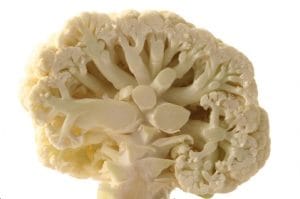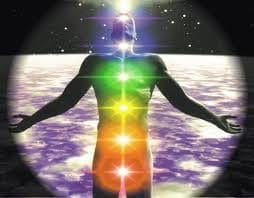If food molecules build the body … then the mind is the bricklayer who chooses the bricks

Jeanne Louise Calment, the oldest woman in the world at the time, smoked until she was 17. Apparently, she did not think that “cigarettes were bad for your health” or that they caused cancer.
An acquaintance who quit smoking 20 years ago died in his early 50s from the effects of smoking.
Many people eat – literally – the cheapest food they can find. So they don’t look at the nutritional value, the calories, the “E” content, the amount of sugar present and so on. They don’t exercise, they don’t walk, they don’t meditate, they don’t take planned time to rest and so on. They just “do the usual things” to get through the day, which – more often than not – is the same as the day before: work… late lunch… work around the house or visit the pub… dinner and TV or a chat with the company. They are happy and at least moderately healthy.
I know of people who have spent a lot of time, money and attention on their eating habits. They chose their products carefully … they ate more or less only raw and organic food … they ate the recommended amount and specific nutrients every day … they took supplements … they meditated regularly … they got plenty of fresh air and generally lived a healthy lifestyle.
Today, they no longer do.
Many have returned to a “normal lifestyle”, often because of illness. And some have left this world in their prime; due to health problems or serious illness.
One of the key factors in nutrition is – mind

For a long time, it was not clear to researchers and doctors why this was happening. Most of the credit has been given to specific immune systems and genetics; some people are more naturally immune and others less so.
Only recently has an explanation become available that is not only logical, but also scientifically sound and can explain all cases satisfactorily.
Perhaps it is perhaps best summed up by Dr Bruce Lipton, a cell biologist and former lecturer at Stanford University. In an interview*, he revealed the impact of food on the body, or the mind’s impact on the absorption of nutrients and harmful substances from food.
“Our belief can be: now that I have eaten something, it is in my body. The reality is slightly different. If we put something in our mouth, the food enters the digestive tract. But it’s like a tube – if you stretched the whole digestive tract in a straight line, you’d get a tube with a hole on one side and a hole on the other. And if you shone a light on one side, you would see the light on the other,” says Lipton.
It is widely believed that food in the digestive tract somehow leaks out, seeping into the body. This means that the ingested ingredients would automatically end up in the body. However, the body is too intelligent to absorb everything we put into our mouths. The body chooses very deliberately and precisely what it wants to absorb from the digestive tract; by building, by perfecting the structure or manifesting the belief that takes place in the mind.
What does this mean? Lipton explains, “If we have a self-destructive belief – i.e. one that leads to cancer; for example, stress or anger – the body will not extract nutrients from food because that is not what it is looking for; the task is to manifest cancer! Not on a conscious level, of course, but on an unconscious level.”
So, if we are stressed, we will not absorb beneficial substances from food, but only those building blocks that can “build up” a destructive state in the body, which is a reflection of the beliefs in the mind. In other words, if the state of the mind reflects a negative belief, the body’s intelligence seeks substances in the food that will literally poison or destroy the body.
The body is in fact a mirror of our beliefs.
“The task of the mind is to create coherence (interconnectedness, interdependence, etc.) between beliefs and the reality in which we live,” says Lipton.
It follows that our body chemistry is determined by our perception of our environment. What we see around us and, more importantly, how we interpret these things, forms the basis of how our organs function.
How the body manifests illness as instructed by the mind

The process is simple. Our view of ourselves, of others and of the world shapes a thought, which in turn shapes an emotion. Each such process creates chemical elements in the brain that are transferred into the blood and on to every cell.
The cell – which functions as an independent unit, or as Lipton puts it, a “miniature man” – always does what the mind tells it to do, despite its own intelligence. If the mind expresses a negative belief, the cell will merely regurgitate that energy. In short, the cell in the body is incapable of doing anything other than conforming to the mind’s idea.
We can imagine that our body is essentially just fifty billion autonomous units (cells) that follow the mind’s instructions, obeying commands without resistance or expression of will.
So we can eat the best possible food, but if we have a negative view of the world, the body simply won’t absorb the nutrients. On the other hand, it will absorb from the food substances that are harmful to the body; thus, the body will respond to the mind’s representation or “realise the instruction” that has come to the cells from the brain: if the message is “self-destruction”, the cells will follow the instruction.
In the same way, cells will follow a positive message. If chemical elements that express contentment and positive beliefs are carried through the blood to the cells, the cell will “open up” to receive nutrients, eliminate toxins and replenish itself.
In addition, chemical compounds can be created by the mind, without food; or absorbed by the body through polluted air, through the skin, in response to earth radiation, etc. (This is the answer to those who say that they eat only healthy food and it is impossible to get sick.)
“What changes the chemical composition of blood? The brain. What determines what the brain sends to the blood? On our perception of the world we live in,” Lipton adds. “Our beliefs will not only shape our genes, but also our behaviour, which will adapt to those beliefs. If we have positive beliefs, our attitudes and our genes will lead us to health and happiness,” concludes Bruce Lipton.
These findings are confirmed, among others, by one of today’s leading scientists, researcher Dr Joe Dispenza.
Why food can never be a solution for the body if the mind is out of balance

In one of his regular teleseminars**, Dispenza recounted a recent TV experience. “The presenter wanted to get me to say that diet is the solution to everything. I didn’t want to talk about it before explaining the point. If you live your life in a state of agitation (stress), this also affects the physiology of the body,” he said and continued.
“More blood goes to the extremities and less to the internal organs, because in a state of stress, the body is preparing to attack or retreat. You can eat excellent, organic and generally the best possible food… raw or unprocessed food… but if the body is in this state of tension, there is no energy or digestion. The metabolic functions that break down and metabolise food don’t work,” concludes Dispenza.
Many researchers around the world are finding similar results. When we are stressed, the body acts in a “life-saving” way, unable to distinguish whether the body is in real physical danger or whether we have just seen a neighbour at the door to whom we owe money (which we should have paid back weeks ago).
In both cases, the mind senses danger and the body reacts in the same way – it takes a “fighting stance”: energy, blood and nutrients go to the arms, legs and muscles … concentration increases … vision and hearing are perceived … muscles tighten, etc.
Your body is as tense as a string and you can almost hear the adrenaline pumping.
In this state, when the body actually behaves as if we are standing in front of an attacking beast, the body switches off the “unnecessary consumers” of energy so that it has more energy to attack or flee. Unfortunately, the immune system, digestion or metabolism and so on are also very big consumers.
This means that in a state of stress, the body cannot process food efficiently because it simply does not have the resources to do so – it spends all its energy in a state of “fight-ready”.
Therefore, food cannot be the body’s solution. It can be a helper, offering excellent building blocks to build new cells and rebuild … but it is still the “Master” (the mind) that will choose the bricks and build them into the building.
Does this mean we should stop eating good quality, nutritious food? Not at all …
Choose the best food; preferably food that is grown at home or in familiar, local surroundings. Eat it as fresh as possible and as little processed as possible.
But let us not forget the role of the mind.
Even such carefully chosen food will not do us much good if it is not eaten in a positive atmosphere.
Not only what we eat … but also why, when and, above all, how we eat

Before the ceremony, let us take a moment to relax, clear our minds of distracting thoughts, focus our minds and dedicate ourselves to the ceremony. It is a state of gratitude and joyful anticipation that allows the body to absorb nutrients from food.
Let’s eat slowly and mindfully. Chew every mouthful well to help your body break down the food even more. As much as possible, let’s keep in mind during the meal that we are just putting the right building blocks into the body… and how the “master mind” is also happily accepting them.
* Interview with Lisa Garr, “I can Do It” conference, Pasadena, November 2012
** Dr. Joe Dispenza Teleclass Lectures, 2011
This article is based on the book “The Big Ugly Crisis”, by Boris Vene and Nikola Grubiša.
